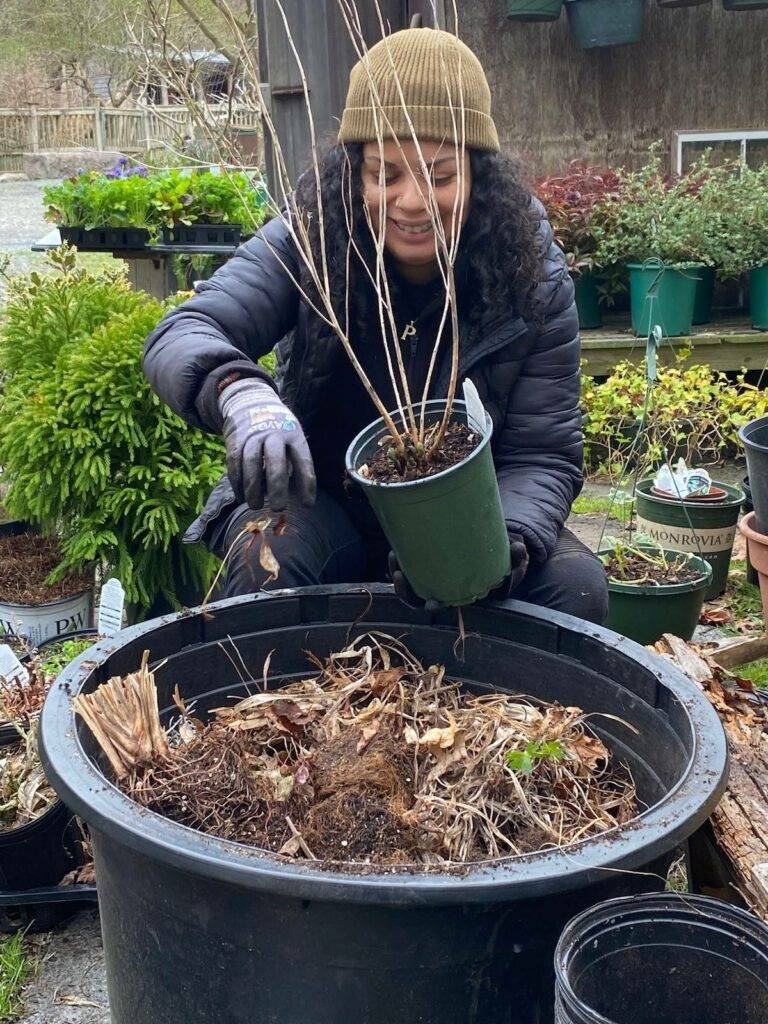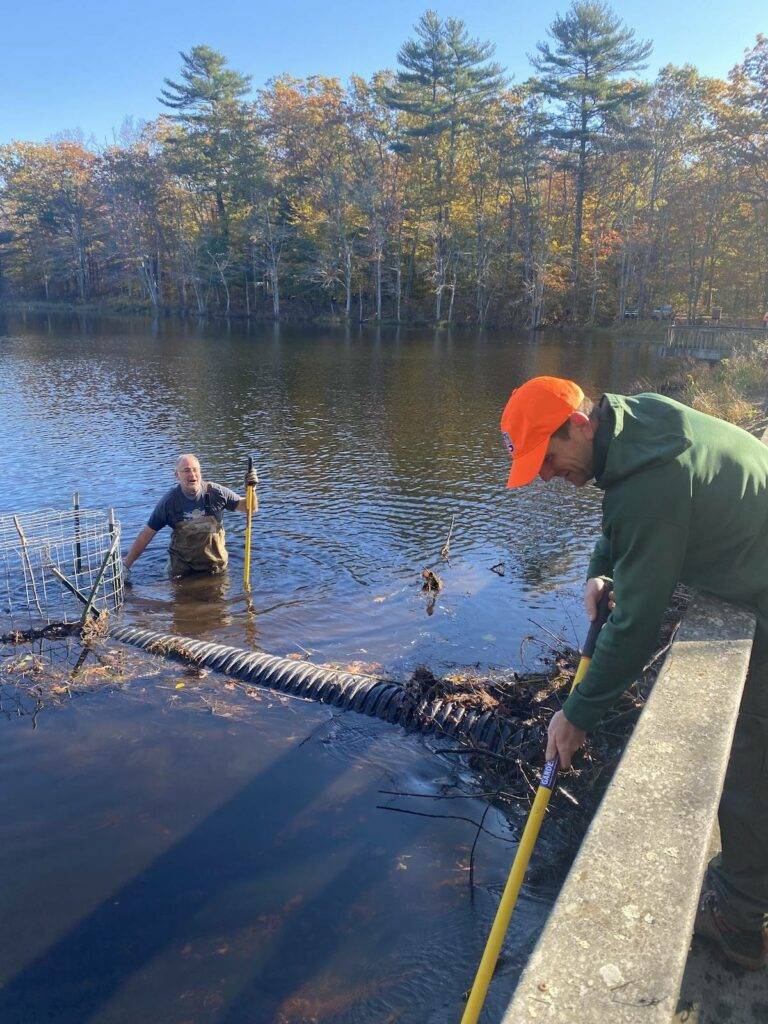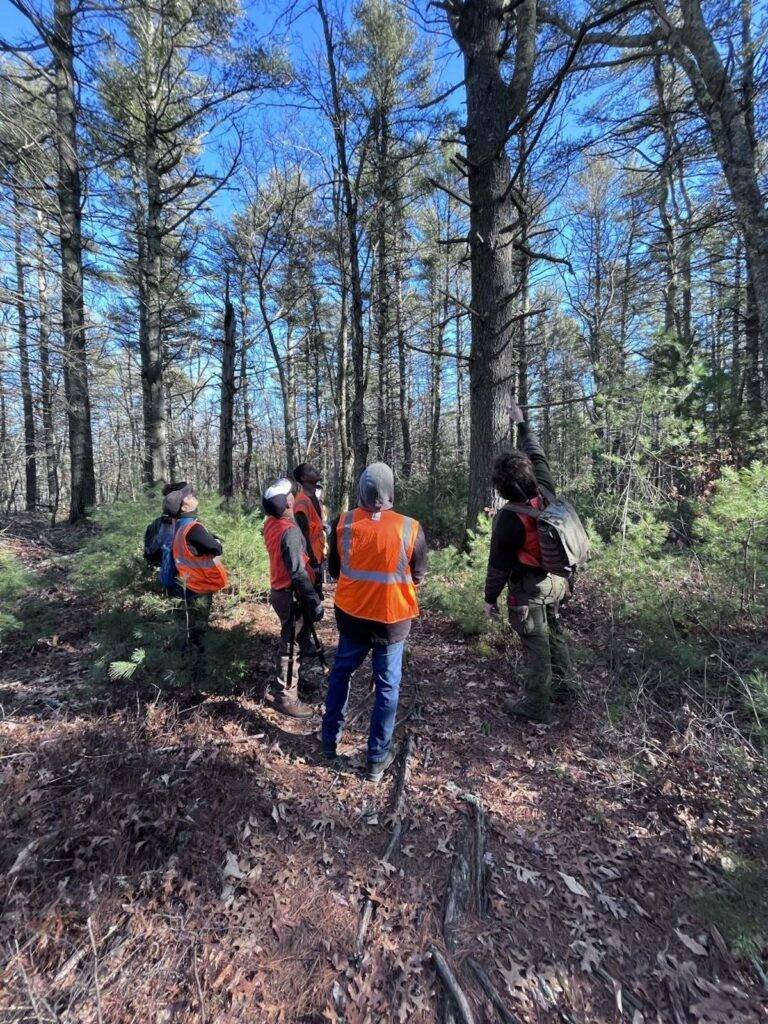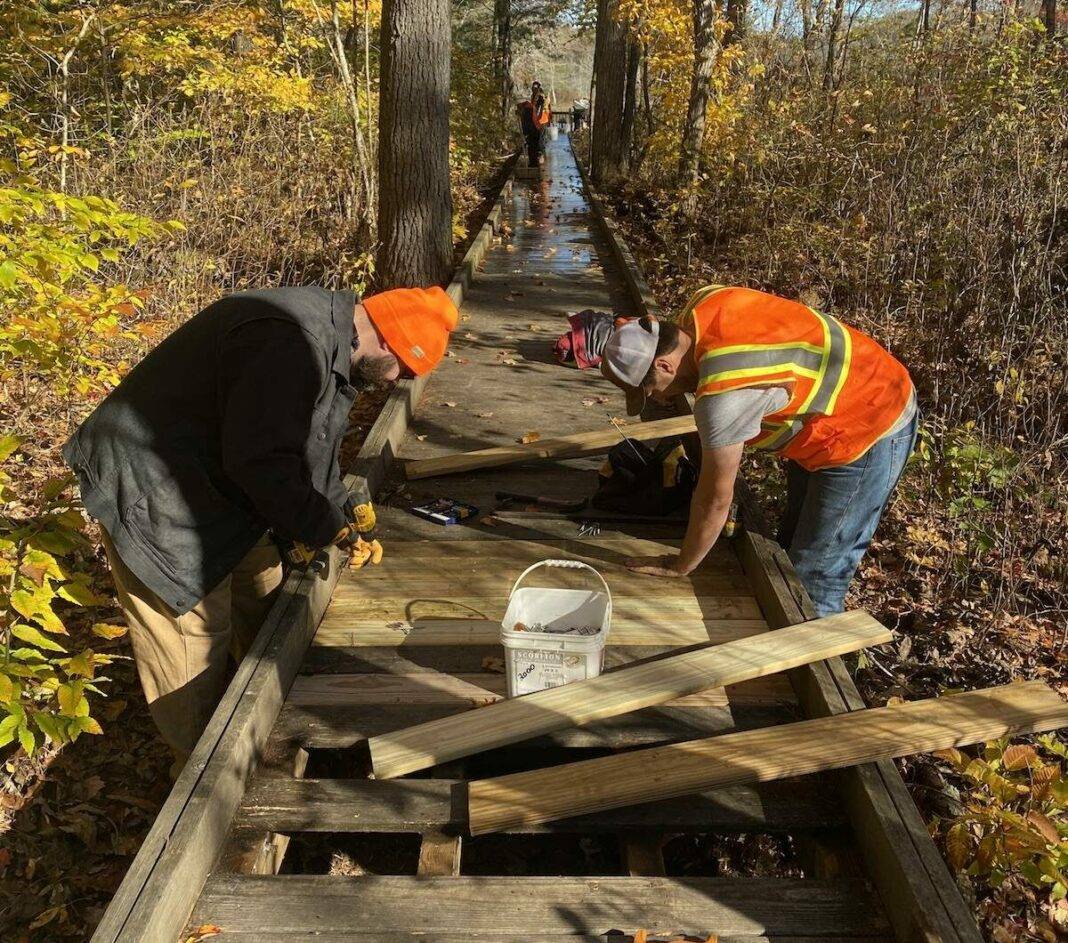A job training program gives unemployed or underemployed people the opportunity to tackle environmental issues.
Getting calloused hands and being pricked by thorns are not just occupational hazards for Priscilla Vargas. They’re an integral part of her professional evolution. The Providence, Rhode Island, resident is a fine gardener and certified level 2 herbalist in the Ocean State, where she is gaining experience and education to start her own business advocating the medicinal values and environmental benefits of plants.

Jace Becker is a hands-on worker who figured out that the traditional college education model was not for him. So he went to work with his hands, as a landscaper and fine gardener. Working for the RI Natural History Survey and Fleurs gardening, he has removed invasive species, planted garden beds, and pruned trees, among other tasks. He recently earned a certificate in horticulture, and his next step is arboriculture.
Vargas and Becker cut their teeth as apprentices in the Growing Futures program of the Rhode Island Nursery and Landscape Association (RINLA). Since 2021, Growing Futures has provided training, education, and resources to the next generation of professionals in the state’s $2.5 billion landscape, agriculture, farming, and plant-based “green” industries. Most participants come to the program unemployed or underemployed, says RINLA’s Director of Education and Training Jordan Miller, and RINLA offers them an opportunity to learn trade techniques and applicable skills to help launch their careers.
“As climate change advances, a lot of what we are trying to teach people is best practices to respond to crisis events,” says Jordan Miller, RINLA’s Director of Education and Training. “The way a tree crew responds to a climate storm is very different [from how] a fine garden crew would respond to invasive phragmites in a garden.”
The impact of the program’s trainees on the environment is substantial, too, as many act as first responders when extreme weather and other climate consequences threaten habitats. They also become environmental stewards by increasing the resiliency of built and natural landscapes while bolstering a “blue” economy (a sustainable use of ocean resources for economic growth) in a state with treasured shoreline and surrounding watersheds.
This environmental version of the modern learn-while-you-earn model is part of what makes RINLA’s strategy so valuable. Its suite of Growing Futures programs fosters a participant’s career growth and appetite for the industry while meeting the industry’s demands, says RINLA Program Associate and Resource Coordinator Mason Billings. This includes a Pre-Apprenticeship week of hands-on manual labor in the Arcadia Management Area to test their physical ability with the work; a five-week intensive Career Catalyst program followed by a job fair that connects participants with RINLA’s member businesses to secure a Registered Apprenticeship; and a two-year Environment, Sustainability, and Management associate degree program at the Community College of Rhode Island to further their studies in a specific field.
“In our Career Catalyst training this year, we graduated twenty-seven people who worked for five weeks, spent time in an online classroom with online homework, and spent thirty-two days in Arcadia doing trail clearing,” Miller explains. “We were able to accomplish the amount of work that one person would take three years to do. That’s huge for us, that we’re able to accomplish that much work all at once in a way that is meaningful for a number of different reasons. It’s giving back. It’s public land. It’s all of ours, it’s Rhode Island’s.”

He adds that 80–85 percent of participants secure jobs where they apprentice with experts in the field, which is notably high for the industry. “In terms of impact on the community, people who were unemployed or underemployed now have jobs. Employers who were struggling to find staff now have staff that we vetted and trained. The State of Rhode Island wins, because public land is maintained in a way that it wouldn’t be otherwise,” he says.
The ecological reverberations across the state and within smaller communities from this work are immediate as well as long-term, Miller adds. Invasive species abatement in Arcadia is ongoing, so trainees and staff witness the effect of this work year after year, as greater swaths of forest can grow without invasives creating a choke hold. Erosion, flooding, and climate change are constant challenges, too, so RINLA is raising awareness of the issues and knowledge of how to resolve them, while helping to develop industry standards that better grapple with the consequences.
“As climate change advances, a lot of what we are trying to teach people is best practices to respond to crisis events. That is different for each type of job for each person,” Miller says. “The way a tree crew responds to a climate storm is very different [from how] a fine garden crew would respond to invasive phragmites in a garden.” The goal, Miller says, “is doing the work more efficiently with better practices as we go.”
“We’re increasing the workforce as we go, too,” adds RINLA Director of Workforce Programs Christie Milligan. “We’re trying to make sure that, as new people enter the industry, they aspire to go out and learn more, because there is so much to learn. We are only with them for five weeks. But we’ll definitely get to see in real time a huge impact in a lot of different ways.”

Meanwhile, Becker and Vargas are envisioning their futures in ways they never dreamed of thanks to the professional certifications, training, and connections they secured through RINLA. Becker says he can’t ever imagine leaving the green industry now that he has a better appreciation of the work and his effect on environmental landscapes and habitats. His next career path into tree service will focus on tree health, pruning, invasive removal, and pollinators, where he hopes to positively influence biodiversity as well as improve state legislation that could combat these issues in the future.
“I have professional accolades now, I’m recognized in the industry and have a professional title I can put behind my name. That says a lot. But now I [also] have a hunger to learn more and know more,” Becker says. “This industry could be a better force for good if there were better regulations on chemical use, an ethics union formed by local or regional companies, and common-sense legislation that [every plant] purchased and installed by the State of Rhode Island must be a native plant.”
Vargas says it’s a blessing that she has a job and experience where she gets to work in nature every day, which is aligned with her passions and her goal of opening a community garden in Providence to grow herbs for medicine and teaching.
“I have two very unique perspectives. As an herbalist, I’m looking at the dandelion not as a weed, but medicinally. I get to educate clients and others that you can use this plant medicinally and [to] make tea. I am getting to know so many plants, so I can connect these experiences,” Vargas says. “The amount of water that is used on grass or to maintain potted containers is shocking. I appreciate the fact that we try to do our best. But for me, it’s the impact that this industry has on the environment and being mindful of that. Some may call this unskilled labor, but you have to have a lot of skills and [knowledge] to do it properly, for the client and the environment too.”

